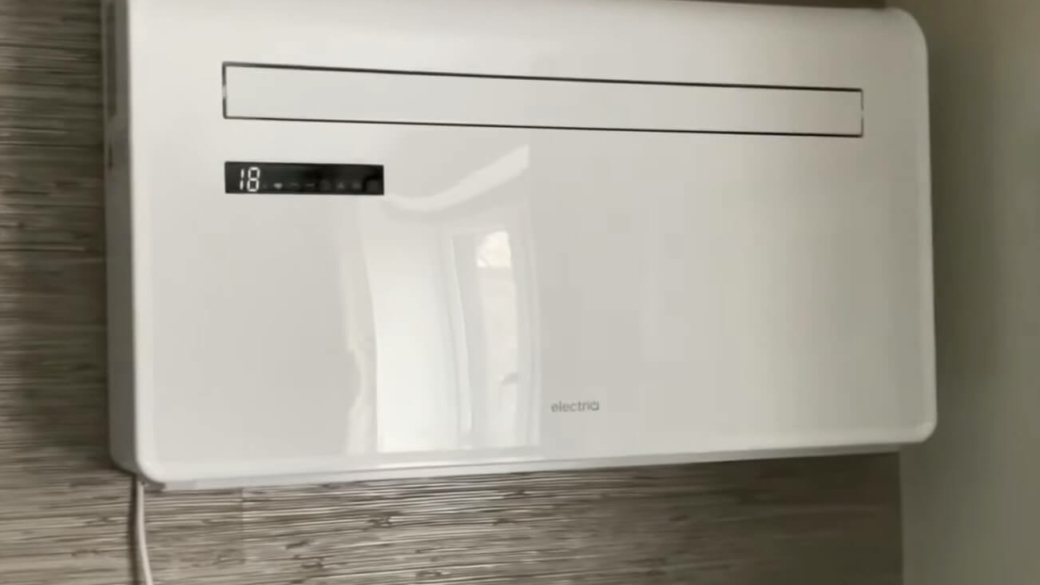How Long Can a Landlord Leave You Without Air-Conditioning?
With the temperature rising in the summer months, air conditioning is essential to keep your living space comfortable. But when the air conditioner breaks, that’s when life gets a little difficult, especially for renters. If you live in rented accommodation, you might be wondering how long can a landlord leave you without air conditioning.
Rents will be pleased to hear that landlords have legal obligations related to air conditioning, and this article will explore what exactly an individual should do when their air conditioning stops.
Landlords’ Legal Obligations
If you have an issue with air conditioning in a rental apartment, you should know what your landlord legally must do.
Federal, State, and Local Regulations
While heating is regarded as an essential service in federal legislation, air conditioning is not guaranteed. This will depend on the local and state laws where you live. For example, in Arizona, landlords are responsible for furnishing and maintaining rental apartments.
In some states, the temperature range of rental properties is an additional responsibility of landlords. To check the laws in your state, click here.
What are the Reasonable Time Frames for Restoring Air Conditioning?
When the landlord is responsible for air conditioning in the rental accommodation, it must be fixed within a fair amount of time. This will vary depending on the specific situation and the laws in the area.
Several aspects could affect the amount of time considered reasonable for restoring air conditioning, such as:
- How severe the issue is
- How accessible the repair services are
- Current or near-future weather
The reasonable time frames for restoring air conditioning will now be looked at by state.
How Long Can a Landlord Leave you Without Air-Conditioning in Arizona
Although your landlord should not leave you without a working air conditioner for more than five days if the temperature outside is 100 degrees Fahrenheit or more in Arizona, the maximum number of days is 10.
How Long Can a Landlord Leave you Without Air-Conditioning in Georgia
In Georgia, there is no deadline for landlords to carry out repairs, like fixing an air conditioner. If your air conditioning needs to be repaired, you must contact your landlord as soon as possible to inform them of the issue.
How Long Can a Landlord Leave you Without Air-Conditioning in Texas
Texas laws are similar to Arizona’s; landlords must repair air conditioners within three days if it could impact the health and safety of tenants. Otherwise, the landlord should fix the AC within seven days of the required repair being reported.
How Long Can a Landlord Leave you Without Air-Conditioning in Virginia
Landlords have a maximum of 30 days to repair broken air conditioning in Virginia, but most AC units will be fixed within 10 to 15 days. This should be carried out quicker if the issue is considered to be an emergency.
The Rights and Responsibilities of Tenants
This is what you need to consider if you’re a tenant and your air conditioning is not working.
How to Report Air Conditioning Issues
If you experience issues with the air conditioning in your rental apartment, you must tell your landlord as soon as possible. This should be communicated in writing, either in a certified letter or an email, to ensure all messages are logged. You can use a repair request template to make sure to communicate the issue to your landlord in the correct way.
A tenant should not carry out the repairs themselves. As the landlord is responsible for the maintenance of the rental property, it is crucial to inform them of any issues right away.
Available Legal Options for Tenants
In some cases, landlords will not repair air conditioning systems within an appropriate time period. When this happens, tenants could have multiple options they can use to defend their rights, including:
- Withholding their rent payments
- Repairing the AC unit and deducting the cost of repairs from the rent payment
- Complaining to the neighborhood housing authority
However, before a tenant uses the above methods to defend their rights, they should first become familiar with their state’s laws. It might also be useful to contact a lawyer or tenant advocacy organization for advice.
Navigating a Lack of Air Conditioning
Read on to find out what you should do to leave yourself in the best situation when your air conditioning stops functioning.
How to Create an Action Plan
Creating an action plan will help to protect the tenant’s rights. To ensure the issue is dealt with successfully, the strategy should include:
- Ensuring the issue is correctly documented: As previously mentioned, you should keep note of all conversations with your landlord – this is easier to do with written communication. It is also essential to keep a record of the AC issue: when it started, what problems were presented, etc.
- Researching the laws and regulations in the area: As well as knowing your rights as a renter and what your landlord is responsible for, you must also read up on the local area’s legislation related to the provision of air conditioning in rented properties.
- Contacting lawyers or housing agencies for legal guidance: Before defending your rights if your landlord does not fix the AC problem within a reasonable timeframe, you should seek out legal advice. Lawyers or your local tenant advocacy organization will be able to discuss any options you have and what is the most effective approach to proceed.
- Communicating with the landlord regularly: During this entire process, you should be proactive in contacting your landlord. You should be aware of the landlord’s plans to fix the air conditioning when the time comes.
6 Temporary Solutions to Use When Waiting for AC Restoration
While waiting for the landlord to repair the property’s air conditioning, there are several ways to keep cool temporarily. The best six ways are listed below:
- Block out the sunlight: One of the easiest ways to keep your living space cooler is to close the curtains or blinds. This will help to keep the sunlight out.
- Circulate air with fans: To keep the air moving, situate fans around the apartment; this will prevent the heat from climbing in the property.
- Drink water: When the temperature rises, it is important to stay hydrated, so make sure to drink plenty of liquids.
- Go to air-conditioned public spaces: If you can, you should visit public spaces that have air conditioning, like community centers, libraries, and shopping malls. These spaces will be kept cooler to ensure visitors are comfortable.
- Open windows in the evening: As it is colder in the evenings, open windows and doors to let fresh air into your home.
- Use portable or window AC units: These products can be used in certain rooms, such as the living room or bedroom, in the house to minimize heat.
Preventative Measures for Landlords and Tenants
These are ways that landlords can stay on top of repairs and issues in the rental property.
Regular Maintenance and Effective Communication
Landlords should carry out regular inspections and maintenance checks to ensure the AC system continues working correctly. All checks should be recorded and planned ahead of time.
If there are any changes in the way the AC unit works, the tenant should report these to the landlord immediately. Changes may include loud noises and uneven cooling. It is crucial that lines of communication are established and kept open at all times so any concerns are addressed promptly.
System Upgrades and Tenant Education
These are 2 important ways to help prevent problems with the air conditioning going forward.
Upgrade Outdated Systems
If the air conditioning unit is ineffective or outdated, then the landlord should be thinking about replacing the system. Not only will this help to avoid future issues, but it will also lower the utility bills for both parties if the new model is energy-efficient.
Educate Tenants
Before moving in, tenants should be given an explanation of the proper use and maintenance of the air conditioner. The landlord should also offer advice on how to deal with typical difficulties, which might help to lessen the chances of severe problems occurring in the future.
Collaborate and Plan Proactively
Landlords and their tenants should work together to keep a working AC unit and reduce the risk of issues happening. If the landlord has an amicable relationship with the tenants, they will be able to foresee possible issues and take action.
What to Do If Your Landlord Refuses to Fix the Air Conditioning
If you have tried communicating with your landlord and they still won’t fix the AC issue, you might need to take further action. You will find several options listed below:
Contact the Local Authorities Overseeing the Housing Regulations
Local housing authorities or building departments are responsible for enforcing laws and regulations related to housing. If your landlord has refused to fix the AC system, you can complain to your relevant local authority. This authority will check your rental property and contact your landlord with a notice of violation, which will instruct them to repair the problem within a specific time frame.
Withhold Rent Payment
In some states of the US, renters are within their rights to withhold rent if their landlords refuse to supply necessary amenities, like air conditioning. This is only if AC is a legal requirement.
Before you withhold rent, it is vital to ensure you are familiar with the rules in your state related to your situation. Withholding rent incorrectly could result in eviction from the property, so seeking legal advice is encouraged.
Repair and Deduct
If your landlord fails to repair the air conditioner, you could carry out the repairs yourself or hire an engineer and subtract the cost from your rent payment. This is called “repair and deduct.”
Again, it is important to check the local laws to ensure this is a permissible action. Also, you should give your landlord notice of your intent to repair and deduct before doing so.
Find Temporary Accommodation at the Landlord’s Cost
If the issue becomes severe, the best course of action might be to seek temporary housing, like a hotel or short-term rental, until the AC system is fixed. In some cases, depending on the seriousness of the problem, the tenant can request their landlord pay the expenses for this accommodation while the air conditioning issue is rectified.
File a Lawsuit
Filing a lawsuit is often a last resort if all other methods have failed and your landlord refuses to fix the problem. You might need to sue your landlord if they have broken the terms of your lease or local housing legislation.
However, it is essential to know that lawsuits can be expensive and time-consuming. Tenants who plan to take this action should seek legal advice to ensure this is the best course of action.
Final Thoughts
Managing issues regarding air conditioning includes a range of aspects, such as understanding landlords’ legal requirements, knowing tenants’ rights and obligations, and taking the appropriate action in the absence of a working AC unit. Understanding the information outlined in their article will make you better prepared to face AC issues and keep your home environment comfortable.
As a tenant, you must remember to be knowledgeable about your state’s laws and regulations, keep open lines of communication with your landlord, and contact a lawyer if necessary.
People also Read
What Happens When Your Private Landlord Dies?
Why is My Apartment so Hot? Tips to Make it Cooler!
Can Landlords Do Renovations While Occupied? Understanding Your Rights and Responsibilities


